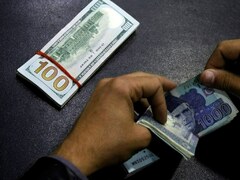Sharp depletion of Brazil's fiscal accounts has prompted the government to slash its key budget surplus goal to a fraction of its original target, according to a planning ministry report released on Friday. In the report, the government says it plans to deduct 106 billion reais in investments from its original primary surplus goal of 116 billion reais ($46.12 billion) or the equivalent of 2.15 percent of GDP. That leaves a surplus of only 10 billion reais for the year or about 0.19 percent of gross domestic product.
Brazil's original 2014 budget law allowed the government to deduct up to 67 billion reais from the goal. The primary surplus, or excess of revenue over expenditure before debt payments, is closely watched by markets and serves as a gauge of the country's capacity to repay its loans.
A sharp deterioration of Brazil's finances under Rousseff has put the once-booming economy in the sights of rating agencies and eroded investor confidence in the country. The fiscal accounts have deteriorated so much that the country runs the risk of recording its first annual primary deficit in nearly two decades. For the new target to be official, the government still needs to get congressional approval on a bill to make the fiscal goal in the 2014 budget law more flexible.
Opposition lawmakers have blocked the vote on the bill that they say its another in a series of fiscal "tricks" that have frayed ties with investors. Government officials have told Reuters the administration could also cut its 2015 primary surplus goal that ranges from 2.5 to 2 percent of GDP. In the planning ministry report, the government cut its economic growth forecast for next year to 2 percent from its original forecast of 3 percent. It also raised its 2015 inflation forecast to 6.1 percent from 5 percent.
BR100
15,103
Increased By
140.9 (0.94%)
BR30
42,619
Increased By
540.8 (1.29%)
KSE100
148,196
Increased By
1704.8 (1.16%)
KSE30
45,271
Increased By
438.2 (0.98%)






















Comments
Comments are closed.